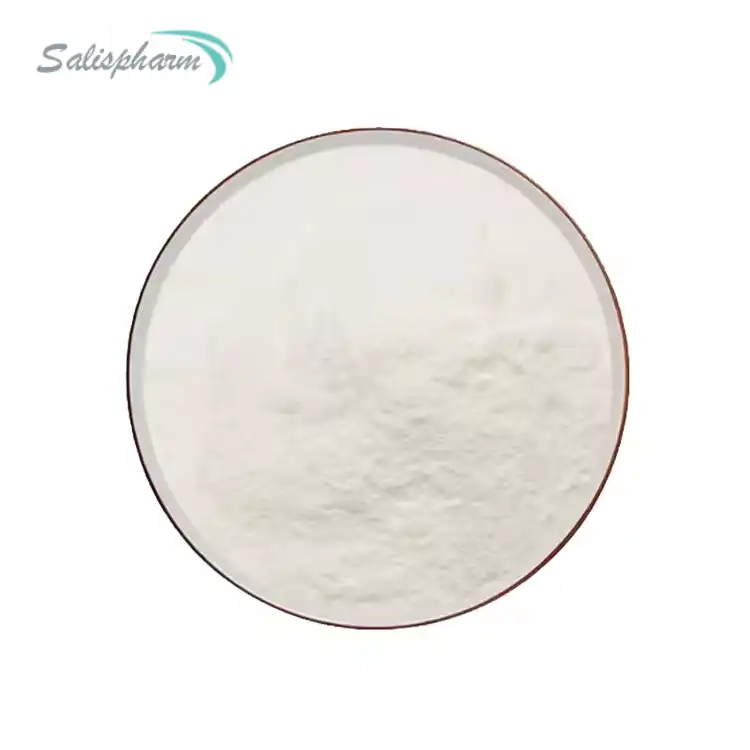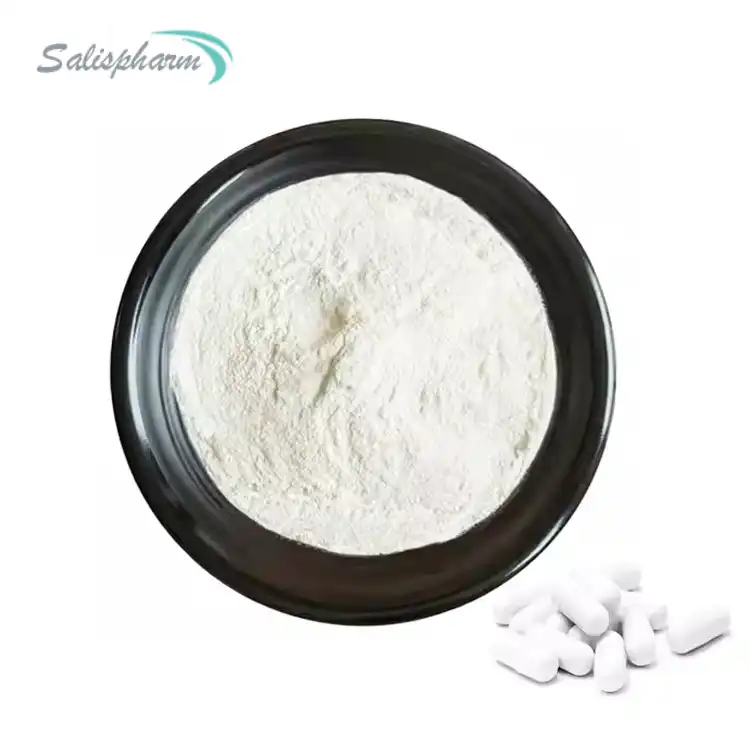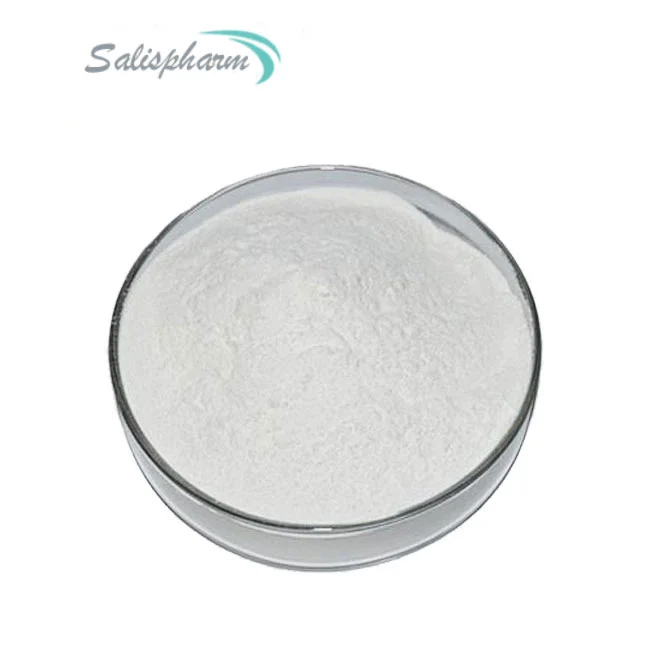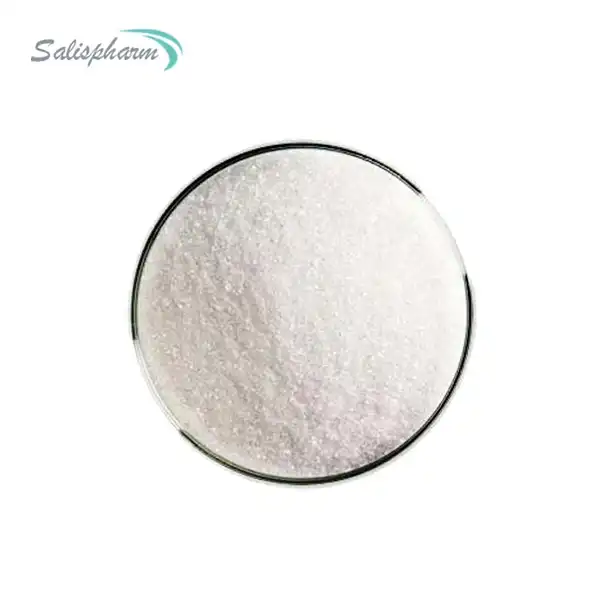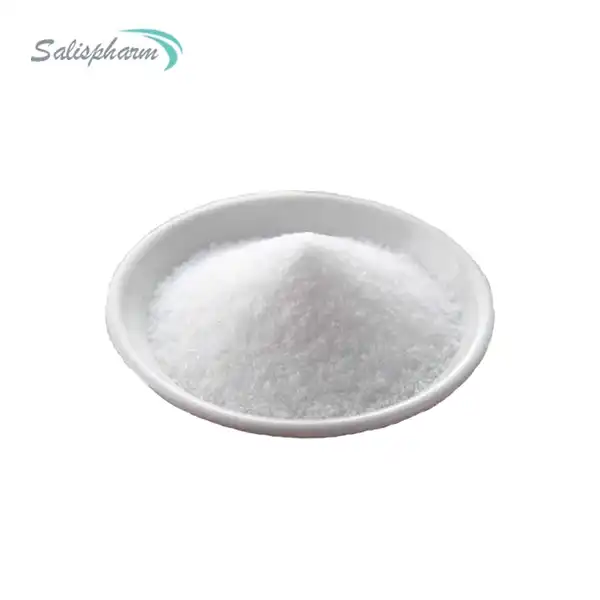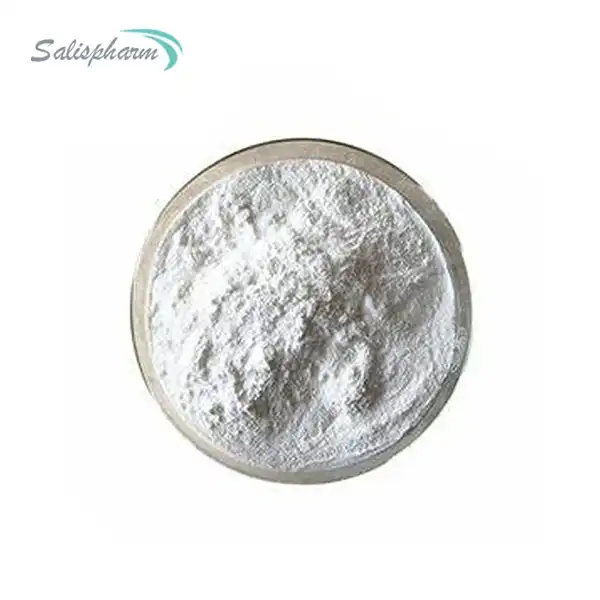S-Adenosylmethionine (SAM) powder, also known as SAM-e, is a naturally occurring compound found in every cell of the body. It plays a crucial role in various biochemical processes, including methylation reactions and the production of neurotransmitters. As a dietary supplement, SAM-e powder has gained popularity for its potential health benefits, particularly in supporting mental health, joint function, and liver health. This blog post will explore the uses and benefits of S-adenosylmethionine powder, addressing some common questions and providing insights based on current research.
What are the benefits of taking SAM-e supplements?
S-Adenosylmethionine supplements have been studied for their potential to support various aspects of health. One of the primary benefits associated with SAM-e is its positive impact on mood and mental well-being. Research suggests that SAM-e may help alleviate symptoms of depression by increasing the levels of neurotransmitters such as serotonin, dopamine, and norepinephrine in the brain. These neurotransmitters play crucial roles in regulating mood, emotion, and cognitive function.
In addition to its potential mood-enhancing effects, SAM-e has shown promise in supporting joint health. Studies have indicated that SAM-e may help reduce pain and inflammation associated with osteoarthritis, a common degenerative joint condition. The supplement's ability to support cartilage production and reduce inflammatory markers makes it an attractive option for those seeking natural ways to maintain joint comfort and mobility.
Liver health is another area where SAM-e supplements may offer benefits. The liver plays a vital role in detoxification and metabolism, and SAM-e is involved in several liver functions. Research has shown that SAM-e supplementation may help support liver health by promoting the production of glutathione, a powerful antioxidant that protects liver cells from damage. Additionally, SAM-e may help improve bile flow, which is essential for proper digestion and the elimination of toxins from the body.
Furthermore, S-Adenosylmethionine Powder has been investigated for its potential to support cognitive function, particularly in older adults. Some studies suggest that SAM-e supplementation may help improve memory and cognitive performance, possibly by supporting the production of phosphatidylcholine, a compound essential for maintaining healthy brain cell membranes.
It's important to note that while these benefits are promising, individual responses to SAM-e supplementation may vary. Consulting with a healthcare professional before starting any new supplement regimen is always recommended, especially for those with pre-existing health conditions or those taking medications.
How does SAM-e work in the body?
To understand how SAM-e works in the body, it's essential to delve into its role in methylation reactions and other biochemical processes. S-Adenosylmethionine is a naturally occurring compound that serves as a universal methyl donor in the body. This means it plays a crucial role in transferring methyl groups (CH3) to various molecules, including DNA, proteins, and lipids. This process, known as methylation, is fundamental to numerous physiological functions.
One of the primary ways SAM-e works is by supporting the production of neurotransmitters. Through methylation reactions, SAM-e contributes to the synthesis of serotonin, dopamine, and norepinephrine. These neurotransmitters are essential for regulating mood, cognitive function, and overall mental well-being. By enhancing the availability of these crucial brain chemicals, SAM-e may help support a balanced mood and improved cognitive performance.
In addition to its role in neurotransmitter production, SAM-e is involved in the synthesis of phosphatidylcholine, a key component of cell membranes. This process is particularly important for maintaining the health and function of brain cells. By supporting phosphatidylcholine production, SAM-e may contribute to improved cognitive function and potentially help protect against age-related cognitive decline.
S-Adenosylmethionine Powder also plays a vital role in the body's detoxification processes, particularly in the liver. It supports the production of glutathione, often referred to as the body's master antioxidant. Glutathione is crucial for neutralizing harmful free radicals and toxins, helping to protect cells from oxidative stress and damage. By boosting glutathione levels, SAM-e may enhance the liver's ability to detoxify harmful substances and maintain overall liver health.
Furthermore, SAM-e is involved in the production of cartilage components, which explains its potential benefits for joint health. It supports the synthesis of proteoglycans, essential molecules that help maintain the structure and function of cartilage. This process may contribute to improved joint comfort and mobility, particularly in individuals with osteoarthritis.
It's worth noting that the body's ability to produce SAM-e naturally may decrease with age or under certain health conditions. This is one reason why SAM-e supplementation has gained interest as a potential way to support various aspects of health, particularly in older adults or those with specific health concerns.
The multifaceted nature of SAM-e's actions in the body underscores its potential as a versatile supplement. By supporting methylation reactions, neurotransmitter production, antioxidant synthesis, and cartilage maintenance, SAM-e may offer a range of health benefits. However, it's important to remember that the effectiveness of SAM-e can vary among individuals, and more research is needed to fully understand its mechanisms and optimal uses.
Can SAM-e help with depression and anxiety?
The potential of S-Adenosylmethionine (SAM-e) to help with depression and anxiety has been a subject of significant interest in the scientific community. While more research is needed to fully understand its effects, several studies have shown promising results regarding SAM-e's potential as a natural support for mental health.
Depression is a complex mood disorder that affects millions of people worldwide. Traditional treatments often involve prescription medications, such as selective serotonin reuptake inhibitors (SSRIs), which work by increasing the availability of certain neurotransmitters in the brain. SAM-e appears to work through similar mechanisms, but in a more natural and potentially comprehensive way.
One of the primary ways SAM-e may help with depression is by supporting the production and regulation of neurotransmitters. As mentioned earlier, SAM-e is involved in the synthesis of serotonin, dopamine, and norepinephrine – all of which play crucial roles in mood regulation. By enhancing the availability of these neurotransmitters, SAM-e may help alleviate symptoms of depression and improve overall mood.
Several clinical trials have investigated the efficacy of SAM-e in treating depression. A meta-analysis published in the American Journal of Clinical Nutrition found that SAM-e was more effective than placebo in improving symptoms of depression. Some studies have even suggested that SAM-e may be as effective as certain prescription antidepressants, with potentially fewer side effects.
Interestingly, S-Adenosylmethionine Powder may also be beneficial for individuals who have not responded well to traditional antidepressant medications. Some research has explored the use of SAM-e as an adjunct therapy, combining it with standard antidepressants to enhance their effectiveness. This approach may be particularly helpful for those with treatment-resistant depression.
When it comes to anxiety, the research on SAM-e is less extensive, but still promising. Anxiety often co-occurs with depression, and the two conditions share some underlying neurochemical imbalances. By supporting overall neurotransmitter function and brain health, SAM-e may indirectly help manage symptoms of anxiety.
Moreover, SAM-e's role in methylation reactions may contribute to its potential anxiolytic effects. Proper methylation is crucial for the production of melatonin, a hormone that regulates sleep-wake cycles. By supporting healthy melatonin production, SAM-e may help improve sleep quality, which is often disrupted in individuals with anxiety and depression.
It's important to note that while the potential of SAM-e for depression and anxiety is promising, it should not be considered a replacement for professional medical advice or treatment. Anyone experiencing symptoms of depression or anxiety should consult with a healthcare provider to determine the most appropriate course of action.
Furthermore, the effectiveness of SAM-e can vary among individuals, and it may take some time to notice its effects. Some people may experience benefits within a few weeks, while others may need to take SAM-e for a longer period before noticing improvements in mood or anxiety levels.
As research continues to explore the potential of SAM-e for mental health, it's becoming increasingly clear that this naturally occurring compound may offer a valuable option for those seeking to support their emotional well-being. Its multifaceted approach to supporting brain health, combined with its generally good safety profile, makes SAM-e an intriguing subject for further study in the field of mental health.
In conclusion, S-Adenosylmethionine powder offers a range of potential health benefits, from supporting mental well-being and joint health to promoting liver function and cognitive performance. As a naturally occurring compound involved in crucial biochemical processes, SAM-e presents an intriguing option for those looking to support their overall health through supplementation. While more research is needed to fully understand its mechanisms and optimal uses, the current evidence suggests that SAM-e may be a valuable addition to a comprehensive approach to health and wellness. As always, it's essential to consult with a healthcare professional before starting any new supplement regimen to ensure it's appropriate for your individual needs and health status.
If you are also interested in this product and want to know more product details, or want to know about other related products, please feel free to contact iceyqiang@aliyun.com.
References:
1. Bottiglieri, T. (2002). S-Adenosyl-L-methionine (SAMe): from the bench to the bedside—molecular basis of a pleiotrophic molecule. The American Journal of Clinical Nutrition, 76(5), 1151S-1157S.
2. Galizia, I., Oldani, L., Macritchie, K., Amari, E., Dougall, D., Jones, T. N., ... & Young, A. H. (2016). S‐adenosyl methionine (SAMe) for depression in adults. Cochrane Database of Systematic Reviews, (10).
3. Papakostas, G. I., Mischoulon, D., Shyu, I., Alpert, J. E., & Fava, M. (2010). S-adenosyl methionine (SAMe) augmentation of serotonin reuptake inhibitors for antidepressant nonresponders with major depressive disorder: a double-blind, randomized clinical trial. American Journal of Psychiatry, 167(8), 942-948.
4. Najm, W. I., Reinsch, S., Hoehler, F., Tobis, J. S., & Harvey, P. W. (2004). S-adenosyl methionine (SAMe) versus celecoxib for the treatment of osteoarthritis symptoms: a double-blind cross-over trial. BMC Musculoskeletal Disorders, 5(1), 6.
5. Anstee, Q. M., & Day, C. P. (2012). S-adenosylmethionine (SAMe) therapy in liver disease: a review of current evidence and clinical utility. Journal of Hepatology, 57(5), 1097-1109.
6. Raina, A., & Fehlings, M. G. (2016). The Potential of S-Adenosylmethionine as a Neurorestorative Therapy in Spinal Cord Injury. Neural Regeneration Research, 11(8), 1214.
7. Sharma, A., Gerbarg, P., Bottiglieri, T., Massoumi, L., Carpenter, L. L., Lavretsky, H., ... & Brown, R. P. (2017). S-Adenosylmethionine (SAMe) for neuropsychiatric disorders: a clinician-oriented review of research. The Journal of Clinical Psychiatry, 78(6), e656-e667.
8. Lu, S. C. (2000). S-Adenosylmethionine. The International Journal of Biochemistry & Cell Biology, 32(4), 391-395.
9. Mischoulon, D., & Fava, M. (2002). Role of S-adenosyl-L-methionine in the treatment of depression: a review of the evidence. The American Journal of Clinical Nutrition, 76(5), 1158S-1161S.
10. Delle Chiaie, R., Pancheri, P., & Scapicchio, P. (2002). Efficacy and tolerability of oral and intramuscular S-adenosyl-L-methionine 1,4-butanedisulfonate (SAMe) in the treatment of major depression: comparison with imipramine in 2 multicenter studies. The American Journal of Clinical Nutrition, 76(5), 1172S-1176S.



